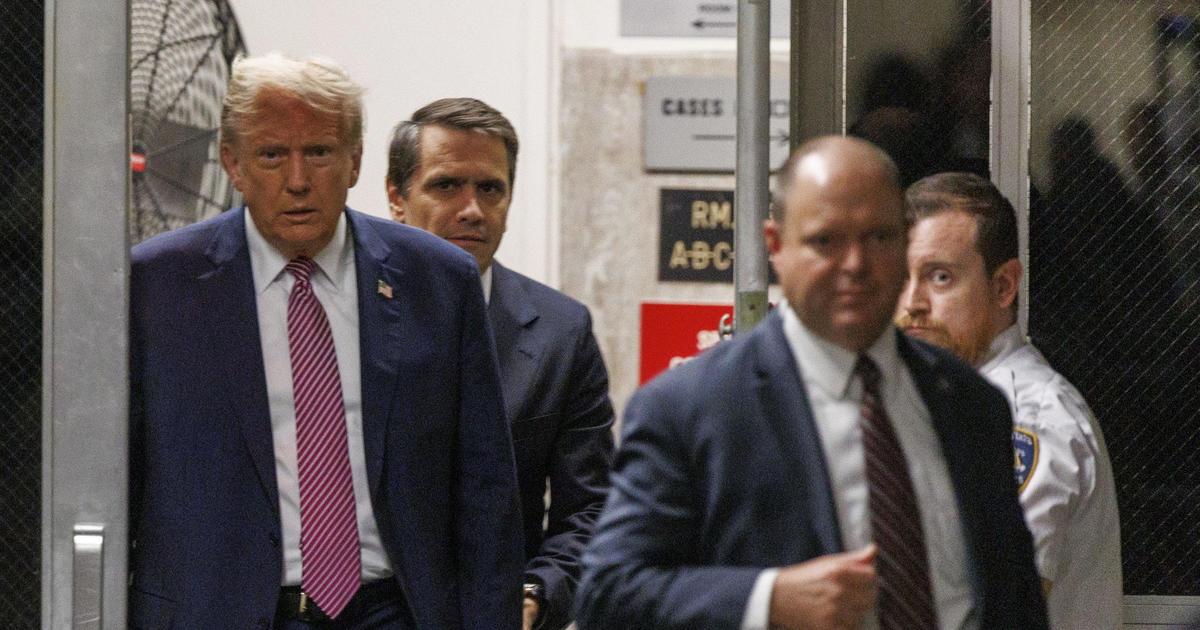State Department: No Record Of Hillary Clinton Signing Form About Turning Over Documents
WASHINGTON (CBSNewYork/AP) -- The State Department said Tuesday it had no record showing that Hillary Rodham Clinton signed any official statement attesting that she had turned over all unclassified documents related to official business when she left her post as secretary of state in 2013.
Department spokeswoman Jen Psaki said that Clinton's two immediate predecessors, Colin Powell and Condoleezza Rice, had not signed such a statement either.
Psaki said there was no sign of such a statement in department files.
"We're fairly certain she didn't sign one," Psaki told reporters. Psaki said that even though it was "not clear" that such statements were used throughout the federal government or even inside the State Department, she said that department officials were still trying to assess whether Clinton and former secretaries of state should have signed the documents.
The State Department requires employees leaving the diplomatic service to fill out an official statement -- known as form OF-109 -- acknowledging that they have turned over all classified and unclassified records of government business to "responsible officials." But Psaki said that different bureaus within the department had varying rules relating to such statements, effectively making it optional for some employees to fill them out and turn them in. She could not identify the bureaus in which employees had such a choice.
Questions about whether Clinton, a former first lady and New York senator, signed such a document have swirled since the revelation of her use of a personal email account for government-related work. Republicans and other critics have said that the State Department, along with other federal agencies, generally requires outgoing employees to turn over job-related materials before leaving -- and that Clinton also should have met that standard. Federal policy generally requires employees to sign such separation statements declaring they have turned over all documents relating to official business during their employment. Providing incorrect information on the form can be grounds for prosecution.
The office of House Speaker John Boehner, R-Ohio, said in a statement Tuesday that it would be "a big problem if she signed that form like she was supposed to." Others have said it would be equally troubling if Clinton did not sign the form because that would have meant she was holding herself to a different standard than other employees.
Psaki said that Clinton's failure to sign such a statement was "not a violation of any rule" and did not risk any department punishments. She noted that "there are differences between regulations and recommendations," and added that "we're not aware of any penalty for not signing it."
The OF-109 form lists several U.S. Criminal Code violations involving classified materials and government records but does not cite a warning for failing to sign the statement.
Guidance from the National Archives and Records Administration says that personal files may be removed by departing federal officials but that "if you are unsure whether materials are personal or federal records, consult with the agency records officer." NARA also says that "when determining whether to permit departing officials to remove documentary materials, the agency should also consider the extent to which such removal could affect the agency's ability to invoke various legal privileges."
Other agencies have specific rules governing the removal of government files. The Department of Homeland Security, for example, advises that agency records officials will obtain "signed removal forms" from all presidential appointees and that "records will not be disposed of while they are the subject of a pending request, appeal, subpoena or lawsuit under the Freedom of Information Act or the Privacy Act."
The Republican National Committee earlier Tuesday submitted two Freedom of Information requests to the State Department seeking copies of the "separation statements" signed by Clinton and her top aides and related records.
Clinton, a possible 2016 presidential candidate, said last week that when she began her tenure as secretary of state in 2009, she opted to use one device and one email account for both work and personal use because she thought it would be more convenient. She said doing so was allowed by the State Department.
"Looking back, it would have been better for me to use two separate phones and two email accounts," the potential 2016 Democratic presidential candidate said. "I thought using one device would be simpler, and obviously it hasn't worked out that way."
"I fully complied by every rule I was governed by," she added.
She said that after leaving her post, the State Department asked her and other former secretaries of state to provide work-related emails sent through personal accounts, and she turned over 55,000 printed pages even though she believed the federal government already had access to the "vast majority" of the emails because they were sent to people who used official government email accounts.
She said she and her aides deleted about half of the 60,000 emails because they were personal, adding they followed government guidelines.
"I am confident of the process that we conducted and the emails that were produced," the former first lady and New York senator said. "And I feel like once the American public begins to see the emails, they will have an unprecedented insight into a high government official's daily communications, which I think will be quite interesting."
(TM and © Copyright 2015 CBS Radio Inc. and its relevant subsidiaries. CBS RADIO and EYE Logo TM and Copyright 2015 CBS Broadcasting Inc. Used under license. All Rights Reserved. This material may not be published, broadcast, rewritten, or redistributed. The Associated Press contributed to this report.)



